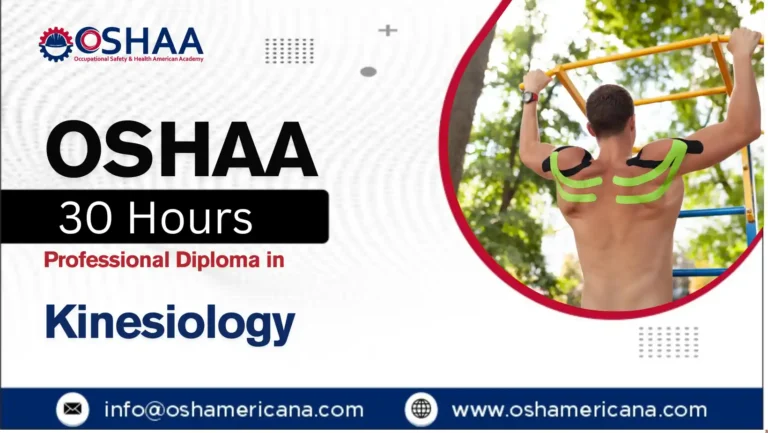The OSHAA 30-Hours Diploma in Expressive Arts Therapy for Autism is a specialised programme designed to equip educators, therapists, caregivers, and healthcare professionals with the knowledge and skills to support autistic individuals through creative arts. This course explores the therapeutic benefits of various expressive art forms, such as music, dance, drama, and visual arts, in enhancing emotional regulation, communication, and social interaction.
Expressive arts therapy is an evidence-based approach that helps autistic individuals express their emotions, develop coping mechanisms, and build social connections through creative activities. Unlike traditional verbal therapies, expressive arts therapy offers non-verbal, sensory-based interventions tailored to the needs of individuals with autism spectrum disorder (ASD).
This diploma provides a comprehensive understanding of how creative arts can improve mental well-being, reduce anxiety, and foster self-expression among autistic children and adults. The OSHAA 30-Hours Diploma in Expressive Arts Therapy for Autism provides a valuable opportunity to learn innovative and practical techniques for autism support.
OSHAA 30-Hours Diploma in Expressive Arts Therapy for Autism
Study Units
Learning Outcomes
Introduction to Expressive Arts Therapy for Autism (3 Hours)
- Understand the fundamental principles and benefits of expressive arts therapy in autism support.
- Identify different forms of creative arts used in therapeutic interventions.
- Explore how expressive arts therapy promotes emotional, social, and cognitive development.
Understanding Autism Spectrum Disorder (ASD) and Sensory Processing (4 Hours)
- Gain insight into the characteristics and challenges associated with ASD.
- Understand sensory processing differences and their impact on autistic individuals.
- Learn strategies to adapt expressive arts therapy to meet sensory needs.
The Role of Music Therapy in Emotional and Social Development (4 Hours)
- Explore how music therapy enhances emotional regulation and communication.
- Understand the connection between rhythm, sound, and cognitive development in autistic individuals.
- Learn techniques to use music to foster social interaction and engagement.
Using Visual Arts to Enhance Communication and Self-Expression (4 Hours)
- Discover how drawing, painting, and sculpting aid in non-verbal communication.
- Learn methods to encourage creativity and emotional expression through art.
- Understand how visual arts can be used to reduce anxiety and enhance focus.
Drama and Movement Therapy for Social Interaction and Confidence Building (4 Hours)
- Understand the role of drama therapy in improving communication and imagination.
- Learn how role-playing and storytelling can enhance social interaction skills.
- Explore movement-based exercises to support body awareness and self-confidence.
Integrating Dance and Body Movement for Emotional Regulation (3 Hours)
- Learn how dance therapy helps autistic individuals develop body coordination and emotional balance.
- Understand the connection between movement and sensory integration.
- Explore techniques to create structured dance activities for therapeutic purposes.
Developing Structured Art-Based Interventions for Autism (4 Hours)
- Gain skills in designing personalised expressive arts therapy sessions.
- Learn how to assess progress and adapt activities for different needs.
- Understand how to create a safe and engaging environment for therapy.
Collaboration with Parents, Educators, and Therapists in Expressive Arts Therapy (4 Hours)
- Develop effective communication strategies for working with families and professionals.
- Learn how to integrate expressive arts therapy within educational and clinical settings.
- Understand the importance of a multidisciplinary approach in supporting autistic individuals.
- Enhanced Understanding of Autism and Expressive Arts Therapy
Gain in-depth knowledge of autism spectrum disorder (ASD) and how expressive arts therapy supports emotional, social, and cognitive development. - Practical Skills in Creative Therapeutic Approaches
Learn how to use music, visual arts, drama, dance, and movement therapy to aid communication, emotional regulation, and social interaction for autistic individuals. - Tailored Intervention Strategies
Develop structured, personalised art-based interventions to meet the diverse needs of autistic children and adults. - Improved Communication and Engagement Techniques
Learn effective ways to foster meaningful interactions with autistic individuals through creative and therapeutic activities. - Collaboration with Parents, Educators, and Therapists
Gain skills in working within a multidisciplinary framework to support autistic individuals in educational, clinical, and home settings. - Career Advancement in Special Education and Therapy
Enhance your professional credentials and open career opportunities in autism support, therapy, and special education. - Application in Various Settings
Apply expressive arts therapy techniques in schools, therapy centres, community programmes, and healthcare environments. - Increased Confidence in Providing Therapeutic Support
Build confidence in delivering structured and effective expressive arts therapy sessions for individuals with autism.
- Special Education Teachers & Teaching Assistants
Professionals working in special education who want to incorporate expressive arts therapy into their teaching strategies. - Therapists & Counsellors
Mental health professionals, art therapists, and counsellors looking to enhance their skills in creative interventions for autistic individuals. - Parents & Caregivers of Autistic Children
Families seeking effective techniques to support emotional expression, communication, and sensory needs through arts-based activities. - Healthcare & Social Care Professionals
Nurses, occupational therapists, and social workers aiming to integrate expressive arts therapy into their care approaches for autism support. - Creative Arts Practitioners
Artists, musicians, and drama specialists interested in using their creative expertise to support autistic individuals. - Students & Aspiring Professionals
Individuals pursuing careers in autism support, therapy, or special education who want to develop a strong foundation in expressive arts therapy.
This course is designed for anyone passionate about using creative and therapeutic approaches to enhance the well-being of autistic individuals in various educational, clinical, and home settings.







